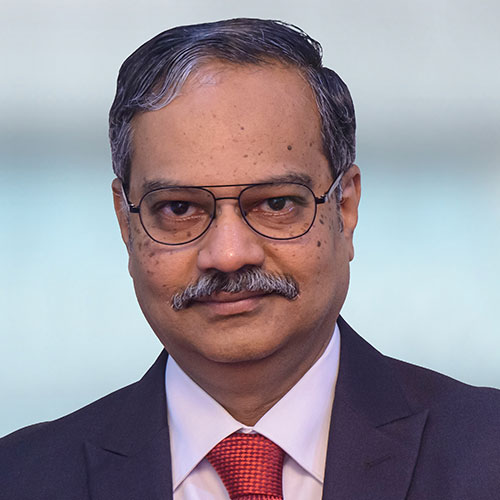Mr. S. Bharathan is the Director – Refineries of Hindustan Petroleum Corporation Limited, effective October 1, 2022. He is a Post Graduate in Chemical Engineering with an impressive career spanning over three decades in the various streams of Refineries and Corporate at HPCL. He has extensive expertise in Refinery operations and cutting-edge technologies. In addition to his role at HPCL, he serves on the Boards of Hindustan-Mittal Energy Limited (HMEL), Mangalore Refinery & Petrochemicals Limited (MRPL), HPCL Rajasthan Refinery Limited (HRRL), and Ratnagiri Refinery & Petrochemicals Limited (RRPCL). He heads the Boards of Hindustan Biofuels Limited (HBL) and Prize Petroleum Company Limited (PPCL). Under his leadership, Visakh Refinery’s Modernisation Project is in advanced stage of completion, with most of the major units already commissioned. India’s most modern and integrated refining cum petrochemical complex is nearing completion in Pachpadra, Rajasthan. HPCL's refineries are also marching ahead with the adoption of Digital Acceleration and process intensification technologies towards achieving net zero. He has worked in Refinery Operations and Technical Services for more than 20 years. Has commissioned several new units under Visakh Refinery’s VREP-2 and DHDS projects. He was the implementation manager for Integrated Refinery Business Improvement Program which was taken up for margin, energy and reliability improvements. He was heading Crude & Production Planning of Integrated Margin Management during it’s initial implementation period and optimized entire supply chain from procurement of crude to sales of products. As a head of Refineries Project Process, was instrumental in designing and adoption of latest efficient refining technologies which includes Indias’ first Residue Hydrocracker. He led the HPCL Green Research & Development Centre (HPGRDC) in Bengaluru for three years. During that time worked on technology development and commercialization of products & technologies. His profound knowledge extends to emerging technologies, advanced developments in the field of petroleum industries and energy transitions era. He was a part of important committees like Energy Transition Advisory Committee, Enhancing Petrochemicals production, Indigenization of Catalyst Manufacturing, Policy for Synthetic Fuels etc.
















